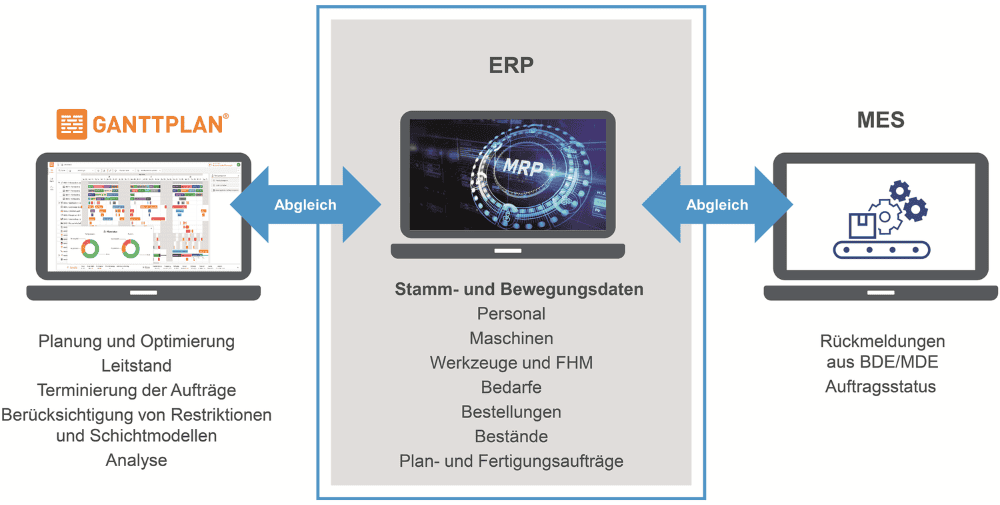
A new study by IBM (NYSE: IBM) shows that companies in Germany and the Europe, Middle East and Africa (EMEA) economic region are already achieving significant productivity gains through the use of artificial intelligence (AI). However, the results indicate that small and medium-sized enterprises (SMEs) and public sector organizations still have some catching up to do compared to large private companies.
The comprehensive report “The Race for ROI”, produced in collaboration with Censuswide, is based on a survey of 3,500 executives in ten countries. In Germany, 62% of the 500 executives surveyed stated that their company had already achieved significant operational efficiency gains through AI. The EMEA-wide average (66%) puts Germany between the UK (66%) and Spain (61%).
About one in five companies in Germany have already achieved their ROI targets through AI-driven productivity initiatives. Almost half expect to achieve a return on investment within twelve months – in particular through an improved Net Promoter Score (50%), higher employee satisfaction (48%), time savings (47%), cost reductions (46%) and higher sales (40%).
Further productivity benefits are expected through the use of so-called agentic AI: 93% of German managers are convinced that this will bring measurable returns within two years, almost identical to the results in the rest of Europe and the Middle East (94%).
Where German companies achieve the greatest productivity gains from AI
The business areas with the greatest AI-related productivity gains in Germany include software development and IT (36%), customer service (32%) and customer and account management (29%).
According to the study, the three most frequently cited benefits of improved productivity for German companies are greater operational efficiency, improved decision-making and the modernization and optimization of IT. In addition, companies in Germany report slightly more frequent increases in turnover than in the EMEA-wide comparison (47% to 41%); France lags far behind with only 29%.
Gap between SMEs and the public sector
However, progress is not the same for all company sizes: while almost three quarters of large companies in Germany report productivity increases through AI, this applies to less than half of all SMEs (with up to 250 employees).
The public sector in Germany is particularly cautious: only around 40% report significant increases in efficiency, which means that Germany lags behind the EMEA average of 55%. Four out of five respondents in Germany cite concerns regarding (data) security and ethics as an important reason.
AI is changing business models in EMEA and Germany
Companies in Germany are also increasingly relying on AI as a driver of strategic transformation. Of the German respondents who report increases in productivity, a quarter state that AI has already fundamentally changed their business model.
In addition, a third are using AI to accelerate innovation, introduce continuous AI-supported decision-making processes or redesign value chains. A further 42% plan to do so in the near future, which is in line with the EMEA-wide average (40-45%).
Almost half of German managers state that AI improves the skills of their workforce. The time gained allows employees to devote more time to operational processes (47%), complex data analysis (40%) and idea generation (39%).
“The true value of AI lies in strategic transformation”
“The true value of AI lies in the strategic transformation of companies,” says Rolf Löwisch, Head of AI, IBM DACH. “Our study shows that 62% of companies in Germany are already achieving significant productivity gains through AI. It is particularly noteworthy that almost half expect to achieve a measurable ROI within a year – thanks to improved employee satisfaction, time savings and increased sales. In terms of technological autonomy, the conclusion is clear: companies want to deploy technology on their own terms, with transparency, choice and flexibility.”
Open systems, interoperability and freedom of choice as success factors
The study shows that openness, interoperability and freedom of choice are top priorities for companies when introducing AI. 86% of German respondents emphasize the importance of transparency and traceability to ensure that AI systems act ethically and responsibly.
Just as important for 85% is the flexibility to freely choose and adapt AI solutions or providers as needed – a clear signal of the desire for technological autonomy. For a further 83%, interoperability is an important factor – i.e. the seamless integration of AI solutions into existing IT systems in order to maximize efficiency and adaptability.
Risks and complexity as the main obstacles
While the results show significant progress in achieving AI ROI goals, companies continue to cite security, data protection and ethics issues as the biggest challenges. In Germany, 68% of executives say security and trust issues are making it difficult to scale successful AI projects, followed by 65% pointing to the complexity of integrating with existing IT systems – almost identical to the figures for EMEA.
Five priorities for accelerating ROI with AI
In order to realize the productivity and return potential of AI even faster, IBM recommends the following areas of action for companies in Germany:
- Establish an effective operating model for AI:
An organization-wide, consistent structure – such as a federated or hub-and-spoke model – with clear accountabilities is critical to translating AI investments into measurable results.
- Promoting AI skills and innovation culture:
AI will be part of almost every activity in the coming years. Training and an innovation-friendly culture – from management to employees – will facilitate the successful introduction of new AI tools.
- Learning to deal with uncertainty and change:
AI is increasingly embedded in every interaction and every system. Organizations that foster openness to change and a culture of continuous innovation will be more successful in the age of ubiquitous AI.
- Understanding and managing risks when using AI:
As with any technology, regulatory, reputational and operational risks must be carefully managed. Governance tools help to avoid risks such as unauthorized data use or unintentional bias.
- Establish an enterprise AI board:
This board should set ethical guidelines and risk tolerances and review risky AI applications before implementation. In combination with greater AI expertise, this will strengthen the autonomy of individual business units.
About the study
The IBM study “The Race for ROI” was conducted in September 2025 in collaboration with Censuswide. Over 3,500 executives (25+) from the UK, Saudi Arabia, the United Arab Emirates, the Netherlands, France, Germany, Italy, Poland, Spain and Sweden were surveyed.
The respondents come from companies already using AI – including organizations in financial services, public sector, retail, telecoms and energy. The sample was evenly distributed by company size.
Quotas were set to ensure an even distribution of responses from companies of different sizes based on employee numbers. The categories were divided as follows: under 250 employees, 250 to 1,000 employees, 1,001 to 5,000 employees, over 5,000 employees.
About IBM
IBM is a global leader in hybrid cloud, AI and business services, helping clients in more than 175 countries gain insights from data, optimize processes, reduce costs and gain competitive advantage. Around 4,000 government and enterprise clients in critical industries such as financial services, telecommunications and healthcare rely on IBM’s hybrid cloud platform and Red Hat OpenShift to drive their digital transformation quickly, efficiently and securely. IBM stands for openness, trust, responsibility, inclusion and service.
– – – – –
Further links
👉 www.ibm.com
Graphic: IBM




